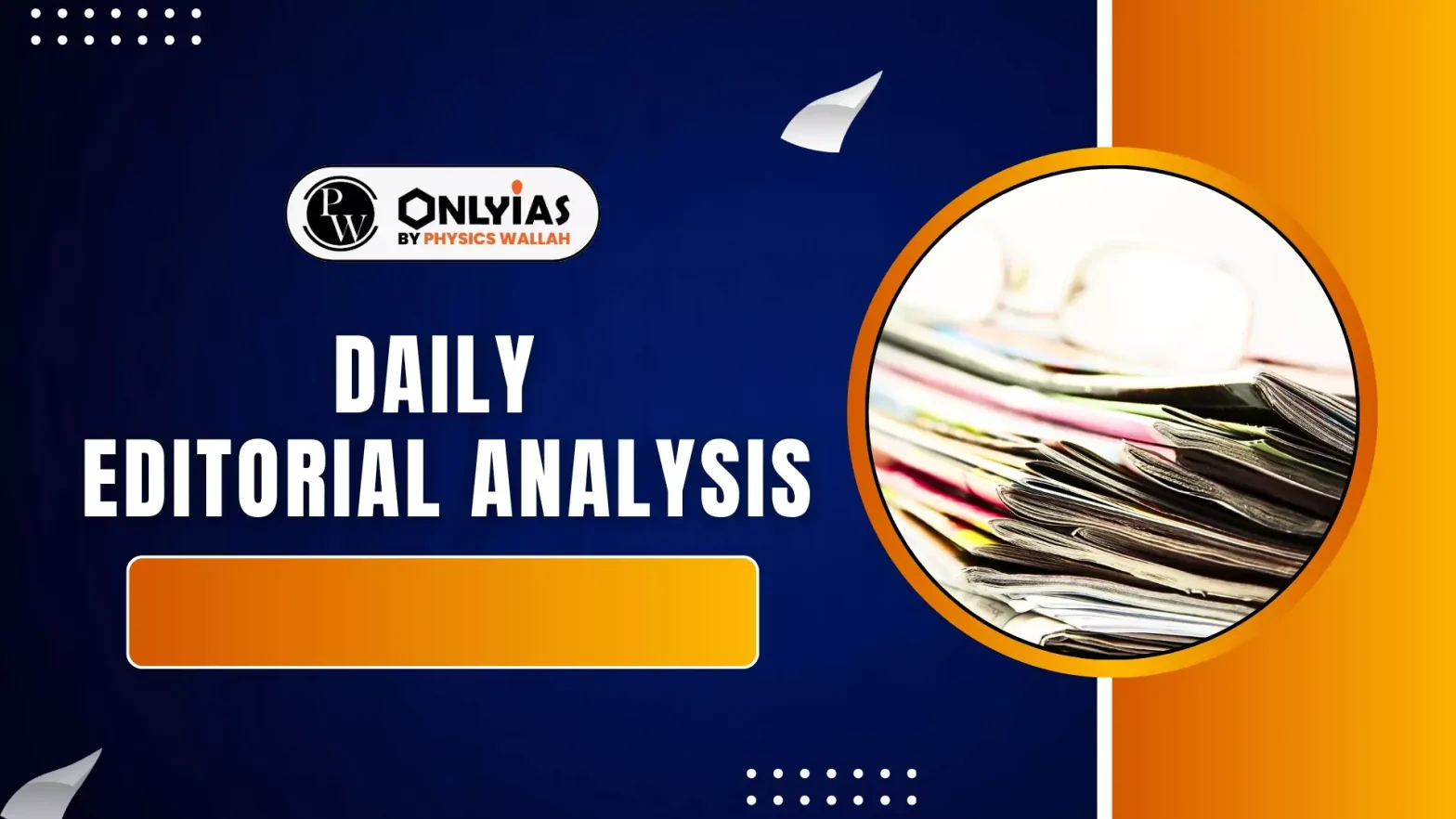The Election Commission of India (ECI), once a beacon of electoral integrity, now faces a profound crisis of confidence and a significant loss of public trust and a severe credibility deficit.
The Illustrious Past vs. Current Reality of ECI
- India’s first Chief Election Commissioner, Sukumar Sen, exemplifies the ECI’s foundational principles. He was a man of action, not words, credited with orchestrating the first general elections in 1950 amidst widespread illiteracy, poverty, and limited communication infrastructure.
- Sen meticulously registered over 17 crore voters and introduced the political party symbol system to aid an unlettered populace.
- His steadfast refusal to hold early elections at Prime Minister Nehru’s behest, prioritising clean elections over speed, showcased an unwavering commitment to impartiality and integrity.
- This legacy of efficiency, trust, and independence stands in stark contrast to the ECI’s present predicament.
Evidences of the Crisis faced by ECI
- The Bihar Special Intensive Revision (SIR) Controversy: The ECI initiated a Special Intensive Revision (SIR) of electoral rolls in Bihar, which resulted in the deletion of 65 lakh voter names from the draft roll.
- This massive deletion prompted significant concerns from opposition leaders and led to a Supreme Court of India interim order on August 14, 2025.
- The Supreme Court, after rebuking the ECI for its initial refusal to provide data, directed it to:
- Publish the list of all 65 lakh deleted names.
- Provide a specific reason for each deletion.
- Ensure the entire list is searchable by name or Electors Photo Identification Card (EPIC) number.
- Accept Aadhaar as a valid identification document for aggrieved persons. This judicial intervention exposed the ECI’s reluctance to transparency and severely undermined its credibility.
- Unconvincing Public Communication: A press conference held by the ECI on August 17, 2025, intended to address public doubts, further damaged its reputation.
- The Chief Election Commissioner (CEC) offered unconvincing answers and appeared to shift the onus onto political parties.
- The ECI’s refusal to share polling booth video footage, crucial for identifying dual voting, was justified on the absurd grounds of violating women’s privacy in a public space.
- The CEC questioned why political parties raise issues after election results rather than before.
- This demonstrates a fundamental misunderstanding that electoral fraud, such as bogus voting patterns, often only becomes apparent after the results are declared.
- The ECI also failed to explain why it refuses to share the same voter list data after results are declared that it provides before elections.
- Systematic Stonewalling of Data Requests: The ECI has consistently stonewalled requests for machine-readable digital voter lists, even when legally obligated.
- The consistent denial of data and reliance on “bureaucratic inertia” highlights a lack of commitment to transparency.
Consequences of ECI Actions on Democracy
- Loss of Trust: The ECI has lost the faith of most major political parties, which itself is a damning indictment. It is also losing the trust of the very voters it claims to serve.
- Compromised Legitimacy: In a democracy, elections must not only be fair but also appear fair to maintain trust.
- When trust in the electoral body erodes, the legitimacy of election results is questioned, and the very foundation of democracy is weakened.
- Deviation from Constitutional Mandate: The ECI is expected to act as an independent constitutional body, not as a department of the government. Its current conduct suggests a failure to uphold its constitutional impartiality and accountability.
Way Forward
- Reform the Appointment Process: The current system allows the government to appoint individuals of its preference to the ECI.
- A neutral collegium, comprising the Prime Minister, the Leader of the Opposition, and the Chief Justice of India, must be re-established to ensure impartial appointments.
- Embrace Enhanced Transparency: The ECI must proactively disclose all relevant data, including Form 17C data and comprehensive voter lists, on its website.
- Form 17C is a mandatory election document in India that records booth-wise voter turnout and election results. It is part of the Conduct of Election Rules, 1961
- This eliminates the need for external requests and fosters greater public scrutiny.
- Ensure Genuine Accountability: The ECI must act truly as a constitutional body it should be made accountable to Parliament to prevent its misuse by the ruling party.
Conclusion
In democracy, people are the true foundation. The ECI’s duty is to safeguard their voice with integrity and fairness.
![]() 21 Aug 2025
21 Aug 2025
